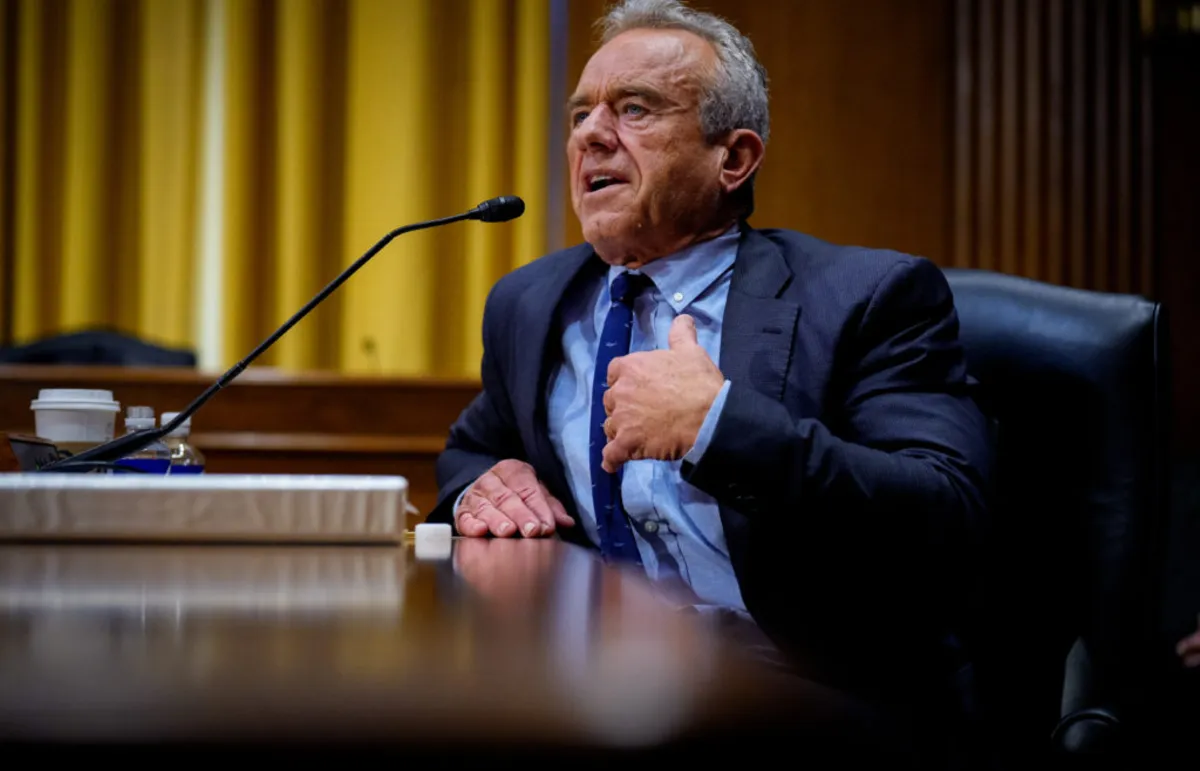
Significant changes are unfolding within public health agencies, particularly at the Centers for Disease Control and Prevention (CDC). This includes high-profile resignations and firings that are raising eyebrows as the nation gears up for the peak of the respiratory illness season. A new U.S. vaccine policy is set to limit access for certain Americans, further complicating the public health landscape. Additionally, a key panel of medical experts has been replaced with hand-picked candidates who hold anti-vaccine stances, igniting widespread debate.
During a recent hearing, multiple senators scrutinized Health Secretary Robert F. Kennedy Jr. for his contradictory statements regarding vaccines and the national COVID-19 response. Some senators even called for his resignation. Kennedy remained defiant, often dismissing their characterizations of his actions. “This is crazy talk. You’re just making stuff up,” he stated when questioned by Senator Maggie Hassan (D-N.H.) about the new restrictions on COVID shots. Hassan retorted, “Sometimes when you make an accusation, it’s kind of a confession, Mr. Kennedy,” highlighting the tension in the room.
Heightening the scrutiny was a call for Kennedy’s resignation from over 20 medical societies and organizations. Former CDC Director Susan Monarez elaborated in a column for The Wall Street Journal, asserting that her recent firing was part of a “deliberate effort to weaken America’s public health system and vaccine protections.”
Here are four pivotal moments from the hearing that captured the contentious atmosphere:
1. Kennedy Critiques CDC's COVID ResponseIn justifying the recent shakeup at the CDC, Kennedy claimed these changes were “absolutely necessary adjustments” to restore the agency's status as a global leader in infectious disease control. “CDC failed that responsibility miserably during COVID,” he asserted, criticizing what he termed “oppressive and unscientific interventions.” However, Senator Ron Wyden (D-Ore.) countered that Kennedy replaced credible experts with “non-experts, vaccine skeptics, and conspiracy theorists,” thereby undermining the scientific credibility of the advisory panel.
2. Discrepancies Over COVID DataSenator Mark Warner (D-Va.) pressed Kennedy on his understanding of COVID and vaccine efficacy, emphasizing the tragic fact that over a million Americans died from the virus. Kennedy responded ambiguously, casting doubt on the death toll and describing the situation as “data chaos” at the CDC. This prompted Warner to challenge Kennedy’s grasp of the situation, questioning how he could be so uninformed when the numbers were readily available.
3. Mixed Responses from Republican SenatorsSenator Bill Cassidy (R-La.), a crucial confirmation vote for Kennedy, expressed his initial concerns but ultimately backed him. Cassidy asked Kennedy if he agreed that former President Donald Trump deserved a Nobel Prize for Operation Warp Speed, the initiative that expedited COVID vaccine development. Kennedy's agreement surprised Cassidy, especially given Kennedy’s attempts to restrict vaccine access.
Senator John Barrasso (R-Wyo.), also a doctor, expressed deep concern over Kennedy’s leadership, pointing to measles outbreaks and Kennedy’s controversial decisions surrounding vaccine guidelines. “Americans have lost faith in the CDC,” Kennedy admitted, indicating a need for transparency to restore public trust.
4. Ouster of CDC Director Sparks DebateThe recent firing of CDC Director Monarez was a hot topic during the hearing. Senator Warren questioned Kennedy about Monarez’s refusal to endorse his changes to the childhood vaccine schedule. Kennedy claimed she resigned after he asked her, “Are you a trustworthy person?” to which she allegedly replied, “no.” Warren was taken aback, asking Kennedy if he was suggesting that Monarez was lying. This exchange underscored the contentious atmosphere surrounding public health leadership in the U.S.
The ongoing disagreements over vaccine policies and the management of public health agencies highlight the challenges facing the U.S. as it navigates a complex landscape of misinformation and changing health guidelines. As the nation prepares for the respiratory illness season, the implications of these decisions will undoubtedly resonate across communities, affecting public health and safety.